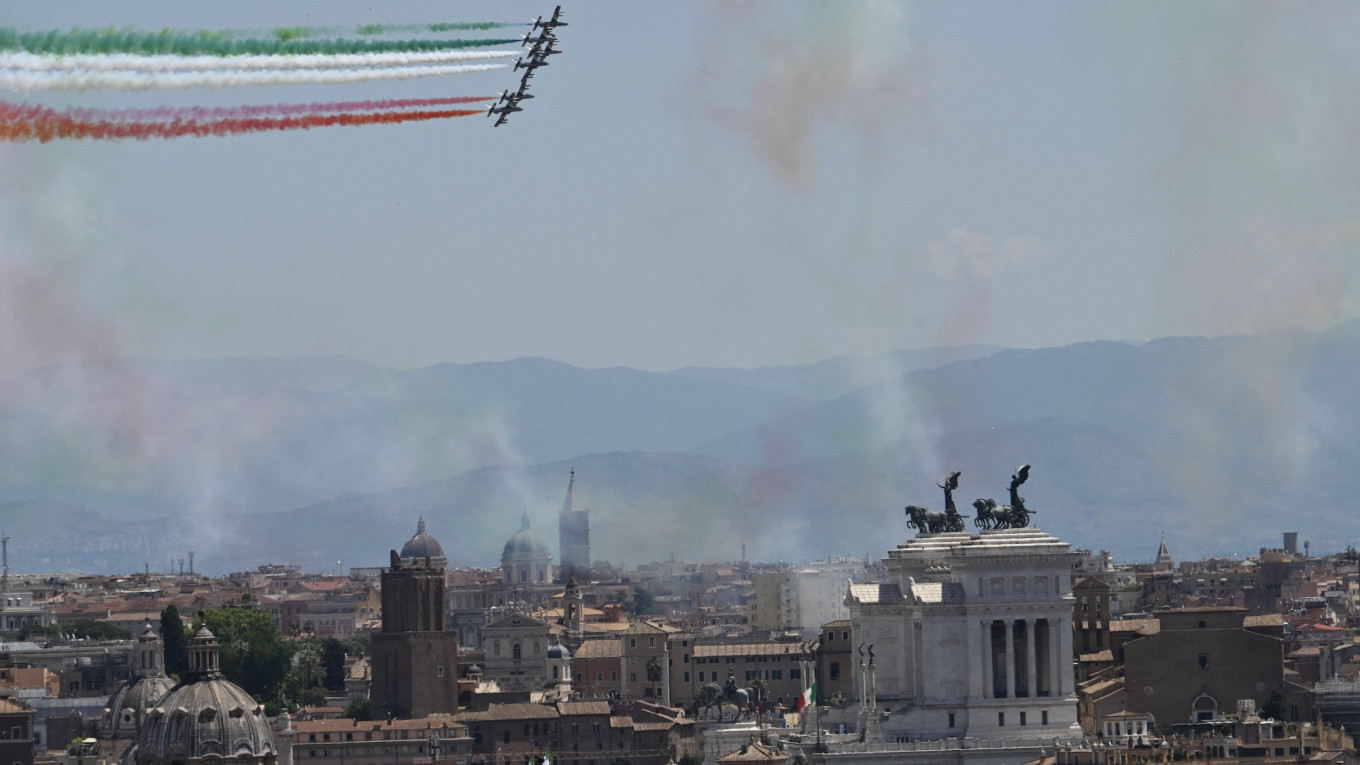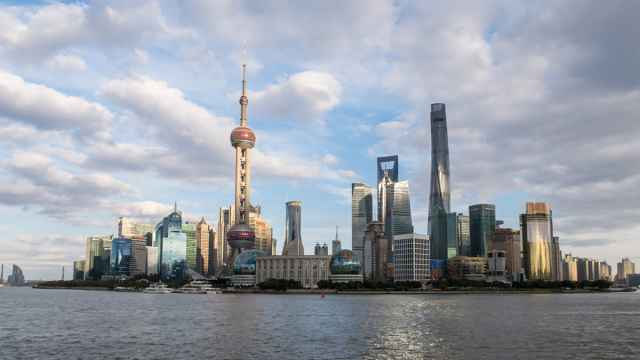The head of the Italian-Russian Chamber of Commerce dropped a startling statistic into a recent interview. More than three years ago, Russia’s full-scale invasion of Ukraine made it the world’s most sanctioned country and rained down reputational risk on Western companies doing business there. Despite that, 70% of Italian companies active in Russia have stayed.
In a conversation with the Russian business news website RBC, Vincenzo Trani described the indecision among Italian executives following Russia’s trampling of the Ukrainian border on Feb. 24, 2022. Confusion and more than a bit of panic were widespread among businesspeople of every nationality in the early days of the war — the stampede toward Moscow’s major airports was live testimony to expat sentiment.
That retreat then spread from the executives to their companies. The war on Ukraine triggered a colossal exodus of Western organizations from Russia. Leaving was a particular priority for high-profile, consumer-oriented businesses facing potential boycotts and pro-Ukraine pressure campaigns if they stayed.
When sanctions did not force the issue, the decision to stay or go included a multitude of common and specific criteria. Did anything set Italian companies apart?
Italian companies left Russia for many of the same reasons that drove most organizations toward the exit. Companies with small market share in the country decided it was not worth the epic hassle of doing business there anymore, even if their specific activities were not sanctioned. Rome pulled out Italy’s state-owned enterprises. Still more Italian firms left because their activities in Russia fell directly under sanctions.
Similarly, Italian companies that stayed share certain characteristics. Executive uncertainty made an early — and easier — departure difficult. In August 2022, the Russian government began to force foreign companies through an increasingly punitive and politicized fire sale process. Most companies complained of feeling trapped in Russia.
It is no secret that hundreds, perhaps even over 1,000, international companies remain in Russia. In certain respects, Italian companies stand apart, if not alone, in their decision-making process.
Italian companies in Russia always felt relatively “comfortable” in Russia, Trani told RBC, and never thought they would meet the same post-invasion hostility that companies from other countries felt. In the vast reallocation of assets that followed the start of the war, Putin seized German, Finnish, Danish and French companies, among others, and never gave them back. The Kremlin seized only one Italian company — Ariston, the heating equipment manufacturer — but ultimately returned it to its parent company. As a result, Trani said, Italian companies “were relatively less afraid than companies from Germany, Denmark, the USA…” The Ariston episode, reportedly the outcome of intense lobbying, gave Italian companies reason to be hopeful.
Trani also touched on one of the more important drivers of any company’s decision to do business in Russia: its appetite for risk.
“Italian companies are actually more prepared for complex situations, where the rules of the game are less understood,” he said. Trani likened Italian companies to their Russian counterparts for their ability to adapt, but took the concept a step further. Italian companies, he said, were eager to see where things would lead post-invasion.
“Maybe something interesting would come of this. That’s why a lot of companies stayed,” he told RBC.
A company’s risk appetite is a defining driver of its global footprint. In some cases, risk appetite is linked to sector: energy companies, for example, need cast-iron stomachs. In other cases, it stems from regulation — or the lack thereof — in a company’s home jurisdiction. Organizations afraid of their justice ministries or stock exchanges tread extra carefully in countries like Russia.
Trani seemed to suggest that a company’s nationality also played a role.
The interview with RBC includes lingering, even nostalgic, references to a type of Italian exceptionalism in Russia and the historical ties between the two countries. Trani sounds proud recounting that the Italian-Russian Chamber of Commerce traces its origins to 1965, the year before Fiat’s landmark investment in the Soviet automotive industry. Even the late Silvio Berlusconi — legendary pal of Russian President Vladimir Putin — gets a name check.
Italy’s UniCredit bank remains in Russia, opting to shrink and stay rather than sell at a loss. Reuters reported on May 28 that the bank had been approached by a group of Emirati companies interested in buying what remains of UniCredit in Russia, but at a deeply discounted offer. The Italian Central Bank is also making a larger financial services industry transaction at home, conditional on UniCredit’s exit from Russia.
According to the Leave Russia website maintained by the Kyiv School of Economics, Italy’s Intesa Sanpaolo bank has Kremlin permission to leave the country. But it still remains today.
From a strictly commercial perspective, it remains difficult to say who looks smart right now: the companies that left or the ones that stayed. Italian companies that left Russia have been able to count their losses, lick their wounds, and move on. Satisfied and profitable as the remaining Italian companies in Russia may be, Trani makes working in Russia sound a bit like life in a constant state of triage. European companies, he said, are behaving pragmatically, not politically: “They’ve invested in Russia and can’t leave at a loss.”
Earlier this year, the companies that stayed in Russia were beginning to look like the smart ones. U.S. President Donald Trump and Putin started talking on the phone, and Secretary of State Marco Rubio and Foreign Minister Sergei Lavrov met twice in Riyadh. Relations between Moscow and Washington seemed on a course toward normalization; companies in the U.S. started calling their lawyers, bankers and PR consultants to lay plans for market re-entry. Trani said European companies have also been wondering how, when, and in what configuration EU sanctions relief might come.
That optimism, for now, is ill-founded. Trump thirsts for better relations with Putin and Putin says he wants to work on his relations with Trump. For now, though, he prefers to continue crushing Ukraine. Geopolitics is pushing an East-West commercial rapprochement into a more distant future.
Companies are also beginning to realize that an end to the war is not an end to their problems. As the conflict drags on, Putin is making the terms and conditions for returning to Russia almost as punitive as the exit process. Still, Trani said interest in returning to Russia among Italian companies is high.
Finally, there is the question of Trani’s own presence in Russia.
Trani has lived and worked in the country for 25 years. He studied at the St. Petersburg Institute of Foreign Economic Relations and worked at the European Bank for Reconstruction and Development. He is the founder of Russia’s largest car-sharing business and is in his second (non-consecutive) term as the president of the chamber.
He is not leaving Russia, at least until the geopolitical situation stabilizes and he can anticipate a better valuation on his business. Until then, he is staying put.
“I always say, I’m not an Italian, I’m a Neapolitan,” Trani said, noting that Sophia Loren used to say the same. “Naples is not your average city. We live next to a volcano and have gotten used to it. We take certain risks in life and understand that sometimes, they’re unavoidable.”
A Message from The Moscow Times:
Dear readers,
We are facing unprecedented challenges. Russia's Prosecutor General's Office has designated The Moscow Times as an "undesirable" organization, criminalizing our work and putting our staff at risk of prosecution. This follows our earlier unjust labeling as a "foreign agent."
These actions are direct attempts to silence independent journalism in Russia. The authorities claim our work "discredits the decisions of the Russian leadership." We see things differently: we strive to provide accurate, unbiased reporting on Russia.
We, the journalists of The Moscow Times, refuse to be silenced. But to continue our work, we need your help.
Your support, no matter how small, makes a world of difference. If you can, please support us monthly starting from just $2. It's quick to set up, and every contribution makes a significant impact.
By supporting The Moscow Times, you're defending open, independent journalism in the face of repression. Thank you for standing with us.
Remind me later.








